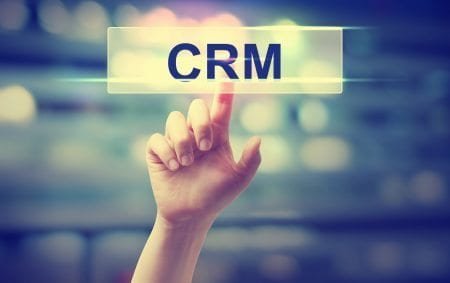Despite revolutionary changes in technology over the last thirty years, the fundamentals of what you do hasn’t changed very much: you communicate ideas by writing, speaking, teaching, and consulting; you offer products and services based on your knowledge; you educate leads and prospects to help them find the right product or solution to a problem – basically, you share your expertise.
What HAS changed about this type of work is the delivery system. Advances in communication tools and automation software allow information to be analyzed and managed in diverse and powerful ways.
Relationships – A Personal Touch in a Digital World
Websites, social media, and electronic messaging have empowered businesses to affordably reach out to whole new markets, clients, and customers like never before. The challenge, however, is how to build credibility, earn trust, and develop relationships in an increasingly electronic and seemingly impersonal world.
Plain and simple . . . people don’t like to do business with companies, they like to do business with people they know, like, and trust. Most of that trust is built through a relationship that is nurtured through continued contact. The challenge for your business is how to maximize the reach and power of the web while still developing the essential personal relationship and trust you need with potential clients and customers.
Today’s consumer expects more than just a random sales pitch. In order to effectively attract attention from customers, it’s important to fully explore your demographics and develop an understanding of what a shopper expects.
With effective customer relationship management, you’ll use such things as buying habits and preferences to produce content that’s likely to attract the right kind of attention. This is why it makes sense to consider the possible benefits of a CRM platform like Salesforce, especially if you are running a small-to-mid-sized business without the resources to conduct extensive research or hire a staff to do it for you.
So, What Is Customer Relationship Management?
Customer relationships today are highly personal and involve a need to understand what people searching for your goods and services actually expect. Signs of this shift are evident in the increased demand for brand interactions that are personal and emotional and not just all about racking up another sale. The purpose of CRM is to manage and analyze customer interactions and data throughout the entire customer lifecycle. The goals associated with such efforts include:
-
Improving customer relationships
-
Encouraging customer retention
-
Driving continued sales growth
What Do CRMs Do?
CRM-specific systems save you time and money by compiling information on various consumers through various points of contact in a way that’s easy to digest and access. In addition to website visits, this typically includes live chats, direct mail and email interactions, and social media engagement. Such systems give your client-facing staff the data they’ll need to create a better customer experience. Common capabilities of CRMs include:
- Marketing automation
- Salesforce automation
- Contact center automation
- Geo-specific technology to target consumers by location
How Can CRMs Work for You?
If you have a system that makes all of the data available easily accessible, everyone on your team who interacts with customers will have the same information. Having everyone on the same page means the consumer will have a more consistent and appealing experience with your brand. Data analysis systems that collect consumer info can also save you the hassle of sifting through increasingly large amounts of customer data and give you more time to actually focus on running your business.
In other words, if you’re not using customer data analytics, you’re already behind the times. Odds are also good that you’re a step behind many of your competitors who are likely using some data collection system to target the same consumers you’re trying to reach. Such platforms can benefit your business by:
-
Consolidating customer information
-
Recording various customer interactions
-
Automating tedious workflow processes (e.g., alerts, calendars)
-
Tracking performance and productivity
How Does Salesforce Help?
The data analysis software available from this cloud-based SaaS (software-as-a-service) provider is designed to strengthen customer relationships beyond simply diving into demographics. The main product available from the company takes advantage of cloud capabilities to allow for easy access to large amounts of data in a way you can use to gain useful insights into your customers’ behaviors, expectations, and preferences. It’s specifically designed to help small-to-mid-sized businesses better manage their customer data. Another perk is access to Salesforce (SF) experts and training classes for all SF products.
Cloud Storage Capabilities
The cloud storage alone eliminates the need to find extra data storage capabilities on your end. In fact, all services are conveniently accessible via a remote storage source. Additionally, cloud-stored data can be accessed by any member of your team who needs to view your customer information from any Internet-based device at any location. SF cloud-based features you’ll have access to include:
-
Your own inbox
-
Lead management
-
Reports and dashboards
-
A Wave app you can use to make data-driven decisions about your marketing, advertising, and engagement efforts
Help Desk System to Enhance the Customer Experience
The beauty of the SF platform is the way it allows you to interact with your customers to improve the customer experience. The help desk feature (Desk.com) is beneficial for your brand and your customers because it allows them to find answers to common concerns to improve your customer service. Handy features include:
-
360-degree customer views and integration
-
Access to business insights
-
CSAT scores that tell you how customers rate their experience with your products, services, and overall interactions with them
Managing B2C and B2B Interactions
The tools available from SF can be used to fine-tune both business-to-consumer and business-to-business interactions. For B2C interactions, you’ll likely appreciate the SF IoT (Internet of things) platform that turns the data available from your customers, partners, and devices into something meaningful. Plus, you can engage with customers in real time.
If you are targeting other businesses, Pardot allows you to have instant access to large amounts of data you can use to generate more productive leads. The marketing automation software automates the lead qualification process. Marketing tools allow for better tracking of campaigns to get more return on marketing investments. A health-related business platform is also available (Health Cloud).
Socially Sharing Knowledge and Ideas
Another uniquely appealing Salesforce feature is the platform’s social collaboration app, Chatter. Available within the SF platform, it’s designed to allow you to connect with employees wherever they may be physically located. The network comes in handy for sharing ideas and knowledge. It allows for:
-
Direct feedback from your various product teams
-
Tracking of projects from mobile devices
-
The ability to act on updates remotely
Integrating Your Sales and Marketing Teams
Salesforce Einstein is artificial intelligence (AI) technology that was developed exclusively for SF’s customer success platform. What Einstein technology means for your business is the ability to give your sales and marketing teams access to the same detailed customer information. Having access to detailed, reliable information can make it easier to integrate sales and marketing efforts to enhance the overall customer experience.
Mobile Access to Your Business
The Salesforce1 mobile app lets you conveniently access your business data and make well-informed decisions about your daily operations and customer interactions. You can essentially monitor and access your business from any mobile device.
Targeting Customers throughout the Buying Cycle – and Beyond
The SF platform puts you in control throughout every possible point of interaction throughout the buying cycle and even beyond that point. You’ll be able to identify new sales opportunities with previous customers based on their purchase histories. With existing customers, you’ll be able to quickly solve problems since you’ll be able to access the data you need to provide meaningful answers. In a nutshell, what this could mean for your business is the ability to:
-
Find more qualified leads
-
Seal more deals
-
Increase customer satisfaction ratings
-
Build brand loyalty
-
Connect individually with customers across multiple channels and platforms
-
Anticipate customer needs based on a knowledge of preferences and past behaviors
Consider Getting Help From a Salesforce Partner
If you are not using a CRM platform, it’s safe to assume that you’re missing several opportunities to build mutually beneficial customer relationships. Salesforce can help you find these opportunities by identifying customers as actual individuals with unique shopping habits and buying preferences and not just as some kind of vague demographic.
Fees are reasonable and you more than get what you pay for when you consider all of the services and features available. You’ll also have the option of monthly or yearly payments. It’s an excellent choice for your customer relationship management needs.




